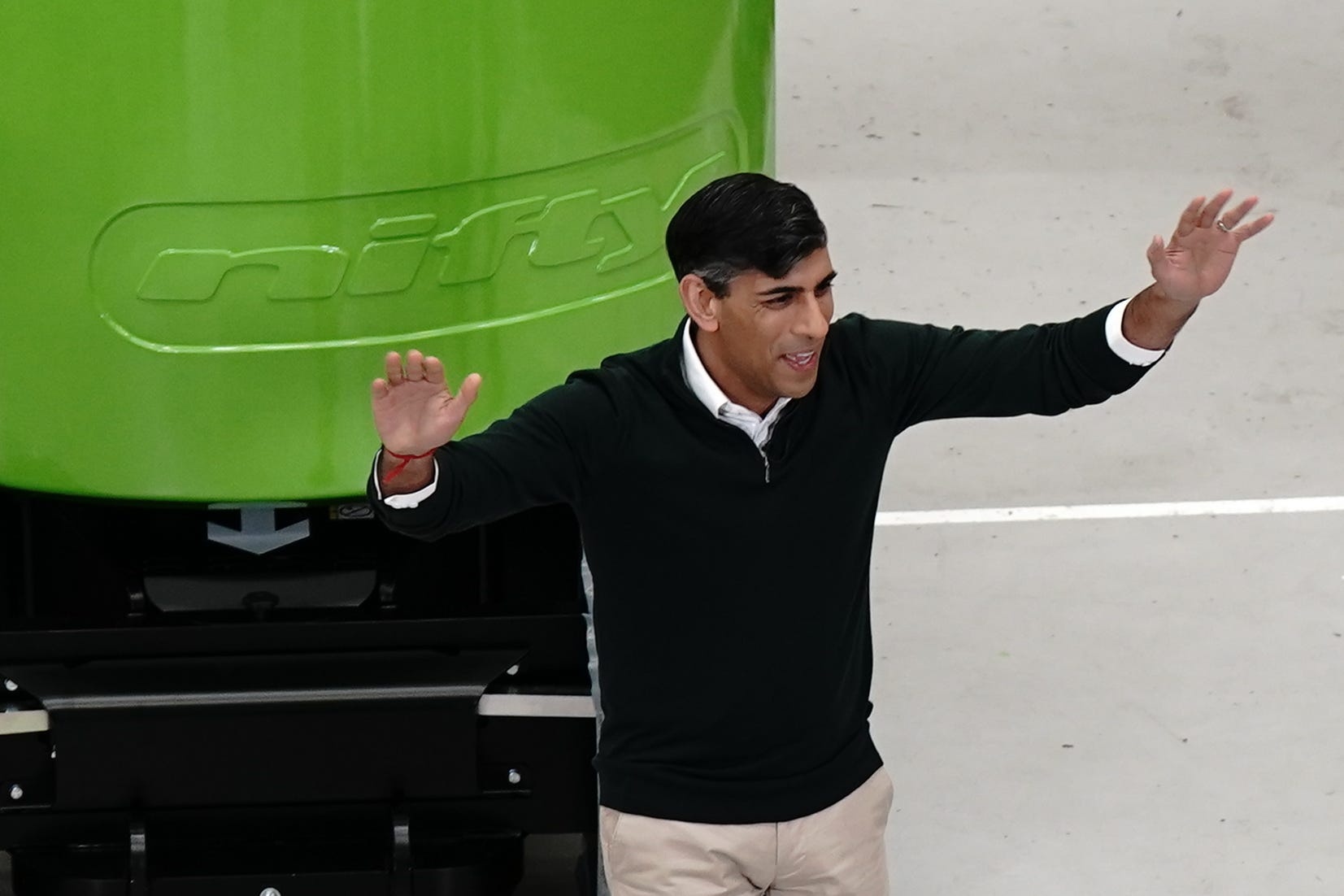National service could lead to renewed sense of pride in Britain, claims Sunak
The Prime Minister said his plan for 18-year-olds to do mandatory military service or community work would ‘bring us closer together’.

Your support helps us to tell the story
From reproductive rights to climate change to Big Tech, The Independent is on the ground when the story is developing. Whether it's investigating the financials of Elon Musk's pro-Trump PAC or producing our latest documentary, 'The A Word', which shines a light on the American women fighting for reproductive rights, we know how important it is to parse out the facts from the messaging.
At such a critical moment in US history, we need reporters on the ground. Your donation allows us to keep sending journalists to speak to both sides of the story.
The Independent is trusted by Americans across the entire political spectrum. And unlike many other quality news outlets, we choose not to lock Americans out of our reporting and analysis with paywalls. We believe quality journalism should be available to everyone, paid for by those who can afford it.
Your support makes all the difference.Rishi Sunak said his national service plan could become a new “rite of passage” which would restore pride in Britain.
The Prime Minister said he had been looking for ways to “restore that sense of patriotism, pride and cohesiveness in our society”.
The Tories would make it compulsory for 18-year-olds to give up the equivalent of a weekend a month for a year to do voluntary work or sign up for 12 months in the armed forces.
Mr Sunak told workers at a factory in Milton Keynes: “It will become a new rite of passage that everyone goes through and bring us closer together.”
It could help develop “a greater sense of pride in what we stand for and what we are as a country”, he said.
One worker at the Niftylift cherry picker factory welcomed the national service proposal but asked how youngsters involved in so-called postcode gang wars would be separated.
Mr Sunak said the scheme for 18-year-olds will “keep them out of trouble”, adding: “When you ask people about gangs, why they join gangs when you talk to youngsters and when you talk to their parents, it’s because being in that gang gives them a sense of identity and a sense of purpose.
“So this is something that will give kids a much more positive sense of identity and purpose and I actually think one of the other benefits of it is we will see that it will be able to reduce crime because we’ll be doing something really positive for young people instead.”